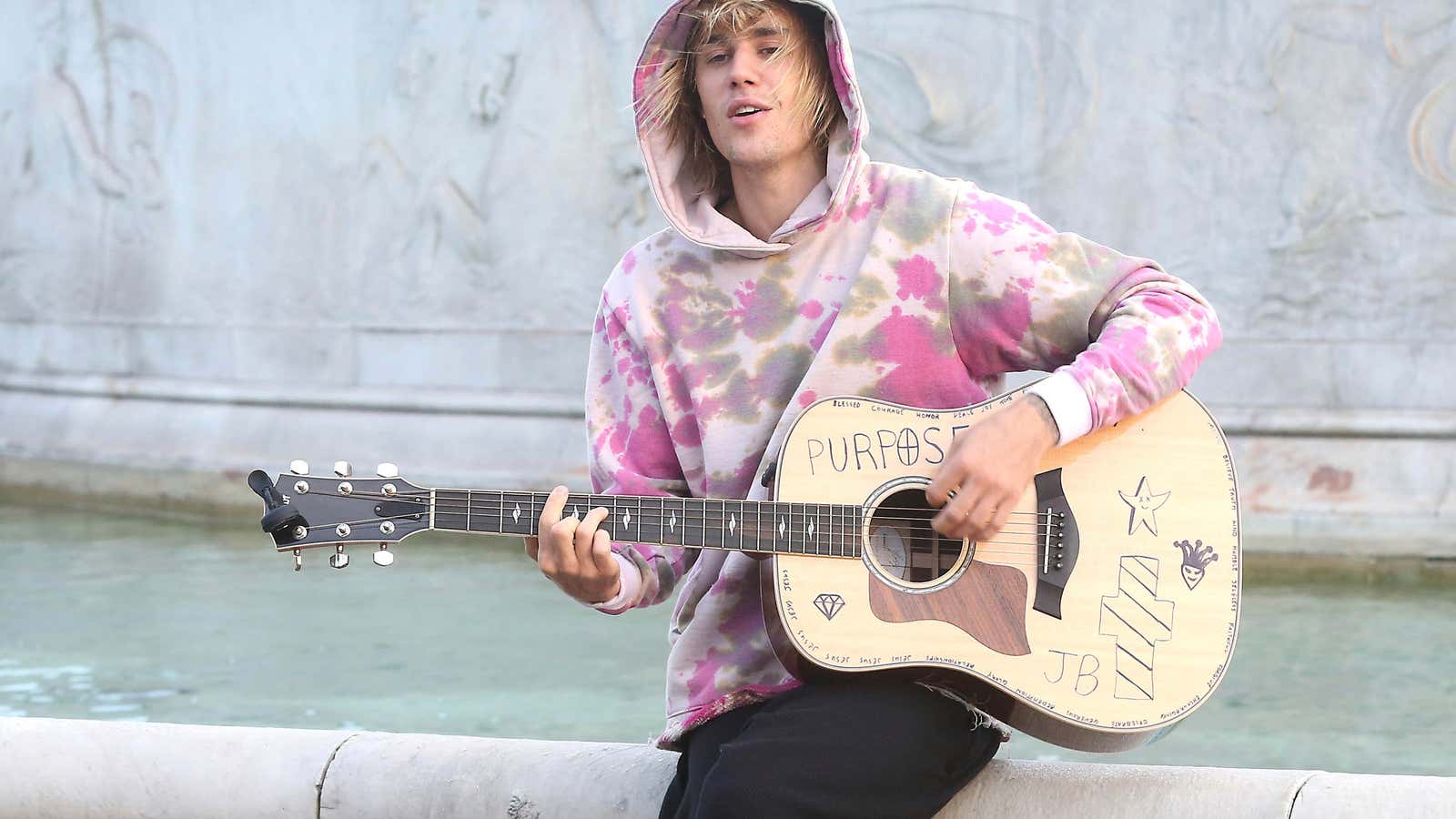Pop music, a genre largely known for its easy, upbeat melodies, is becoming increasingly dark. While a surprising number of songs with reaper-friendly lyrics have topped the charts in recent years, lately pop music seems preoccupied with another heavy topic: mental health, and specifically experiences with anxiety and depression.
“I Don’t Care” by pop icons Ed Sheeran and Justin Bieber is only the latest example of what appears to be a growing trend. The song, which was released in early May and is currently number two on the Billboard Hot 100, chronicles the singers’ experiences with social anxiety:
In verse two, Bieber sings:
I’m crippled with anxiety
But I’m told it’s where I’m s’posed to be
Other chart-topping songs that directly address anxiety and depression include Julia Michaels’s angst-filled ditty “Anxiety” featuring Selena Gomez, in which she sings:
I tell ’em to fuck off, I’m holding hands with my depression
And right when I think I’ve overcome it
Anxiety starts kicking in to teach that shit a lesson
There’s also Ella Mai’s “Boo’d up,” which won a Grammy for Song of the Year (No, this ain’t really like me / Can’t control my anxiety), Post Malone’s “Paranoid” (I wake up every day with this anxiety), and J Cole’s “Friends” (And popping pills due to chronic anxiety).
The young and the anxious
Quartz dug into anxious pop music by looking to the numbers. Lyrics website Genius has a tool that allows you to look at the frequency with which certain words show up in rap lyrics over time. (Genius is among the most comprehensive lyrics websites, and is used by Apple Music and Spotify.) The data clearly show that use of the words “depression” and “anxiety” is growing steadily. The word “peace”, on the other hand, has declined.
It’s unclear what the rising use of these terms in popular music indicates. It’s also unclear whether or not the artists using them are making genuine gestures of vulnerability, or just capitalizing on what seems to be a growing conversation around mental health. Either way, they’re certainly tapping into something relevant to their core demographic—young people, a group in which anxiety and depression are on the rise.
So it could be that artists are singing more about anxiety and depression because the conditions themselves are increasing amongst gen-Z and millennials. Indeed, in a seminal essay for Buzzfeed, writer Anne Helen Petersen termed the latter group the “Burnout Generation” in reference to its chronic, widespread anxiety.
